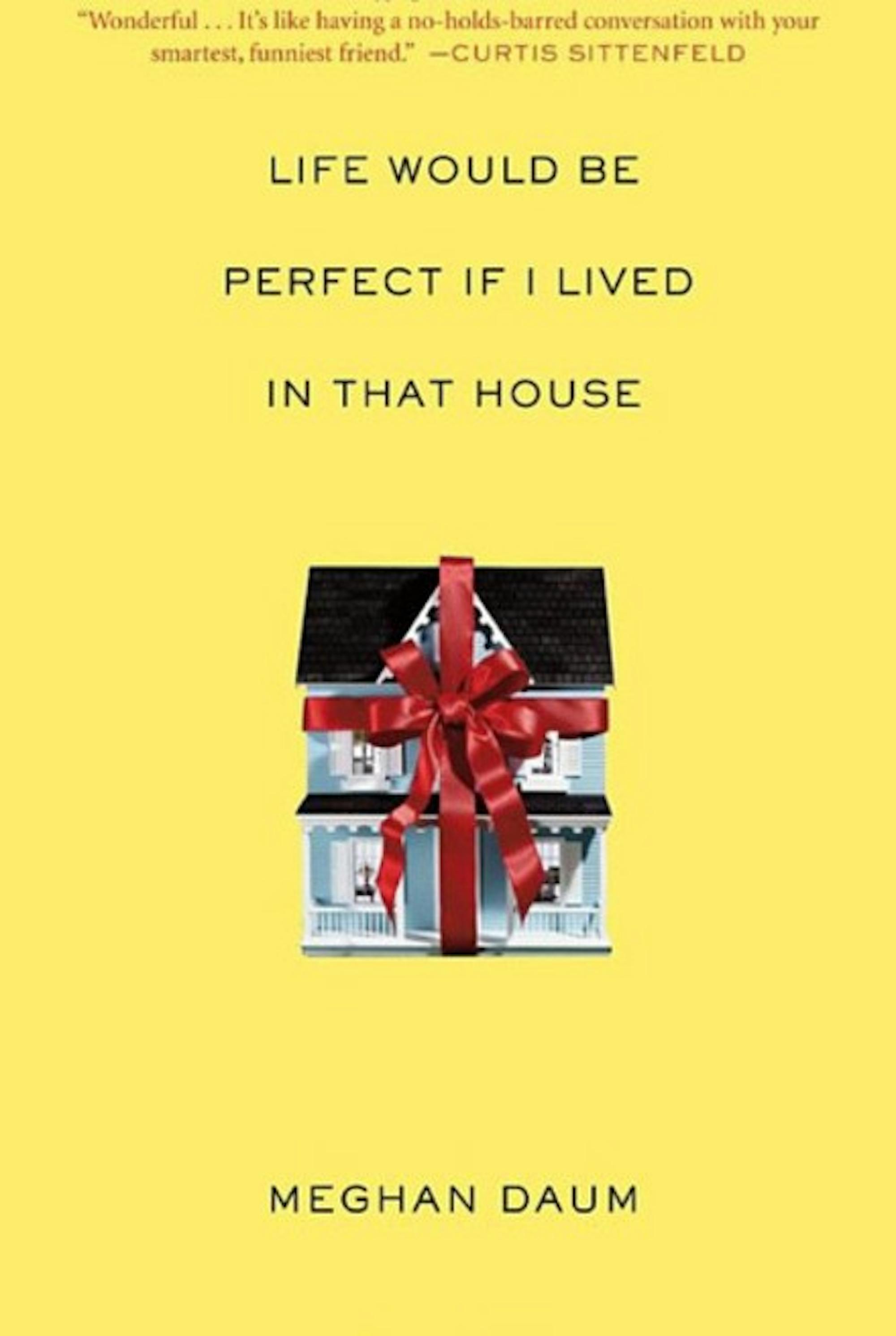So, being a house creeper, I felt a sense of kinship with Meghan Daum the moment I heard the title of her new memoir: "Life Would Be Perfect If I Lived In That House," released May 4. The witty, contemplative narrative chronicles Daum's search for a physical and emotional home, exploring how she got caught up in (and eventually became a financial victim of) the housing bubble, and how she "came to care more about owning a house than committing to a partner or doing my job or even the ostensibly obvious fact that the sun would rise and set regardless of whether my name was on a mortgage."
Skimming this prologue and examining the book's cover, I immediately had high expectations for "Life Would Be Perfect." Amidst a sea of cheesy book jackets, the cover of Daum's novel is appealing, classy even it sports a cheerful bright yellow background and a small photograph of an adorable Victorian-style dollhouse, tied up in a shiny red ribbon. Based on its external attributes, the book seemed as if it would be a humorous, even charming read.
The novel provided way less "house porn" (as Daum puts it) than I had expected. I had hoped that the "That House" Daum speaks of would be a charming Cape Cod or a whimsical Queen Anne, but in the end she purchases a 900-square-foot wreck of a Los Angeles bungalow, making for a totally different reading experience than I had expected, but a rewarding one nonetheless.
Subpar housing is a trend throughout Daum's narrative there are few descriptions of desirable housing options among the countless tales of living arrangements. In college at Vassar, for example, Daum says she "managed not only to major in English, but also to minor in moving," by moving every semester after her freshman year. Once Daum graduated, she proceeded to live in scores of closet-sized apartments and cat-litter-scented rental homes, none of them satisfactory. This, apparently, is the lot of the freelance writer. (I'm screwed.)
When the book finally reaches its climax, Daum vows to give up her wanderlust and settle down, forking over $450,000 for an ugly bungalow house with a garage that is "no longer technically a garage but several tons of concrete carved into a precarious, roofless shell." After this purchase, the housing bubble bursts and the house's value plummets. Nice move, Daum.
All of this is immensely frustrating, and yet I kept reading voraciously, eating up each apartment and even the ridiculous bungalow purchase. Daum's writing, you see, is thoughtful, witty and self-deprecating in the best sense of the word.
Case in point: Daum's use of a clever motif that likens her bungalow (and other living quarters more subtly) to a romantic interest. Boyfriend-less when she first purchased the bungalow, Daum acknowledges that she "was on a twenty-four-hour-a-day-seven-day-a-week date with my house and had no room for any other relationship." She credits her decision to buy the bungalow to her desire to "stop being a house slut," and describes buying the shabby house in relationship terms: "like a girl who cares more about being married than about whom she's married to, I swallowed my pride and signed the first set of papers."
The comparison is original at the very least, and Daum had me laughing throughout her memoir with similarly creative language and humorous descriptions. Daum made me cry too (which, I'll admit, is not that difficult). The conclusion of "Life Would Be Perfect" took me totally by surprise emotionally and brought on the waterworks in a good way. Whereas most of the book is playful and light, Daum's novel transitions seamlessly into a touching story about Daum's mother and a philosophical inquiry into her obsession with shelter in its last pages.
Perhaps this type of ending runs the risk of being cliche, but ultimately Daum's earnest account of her recent experiences makes it work. She ends her novel by musing that the hardest part of life may be "mastering the nearly impossible art of how to be at home," and personally I couldn't help but believe her.




